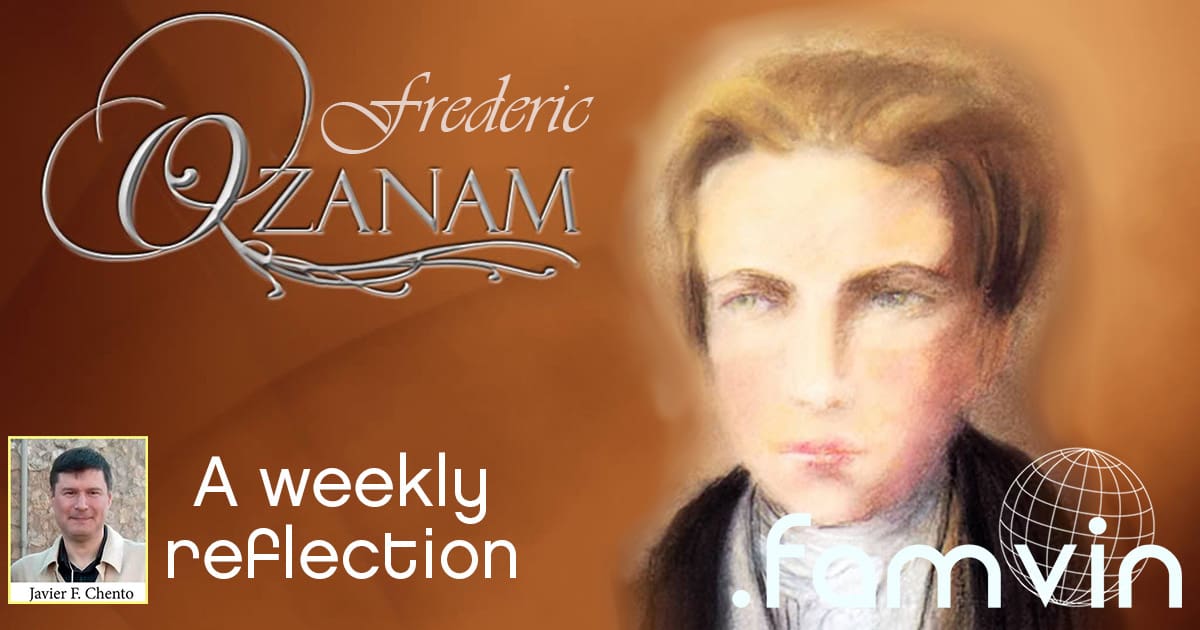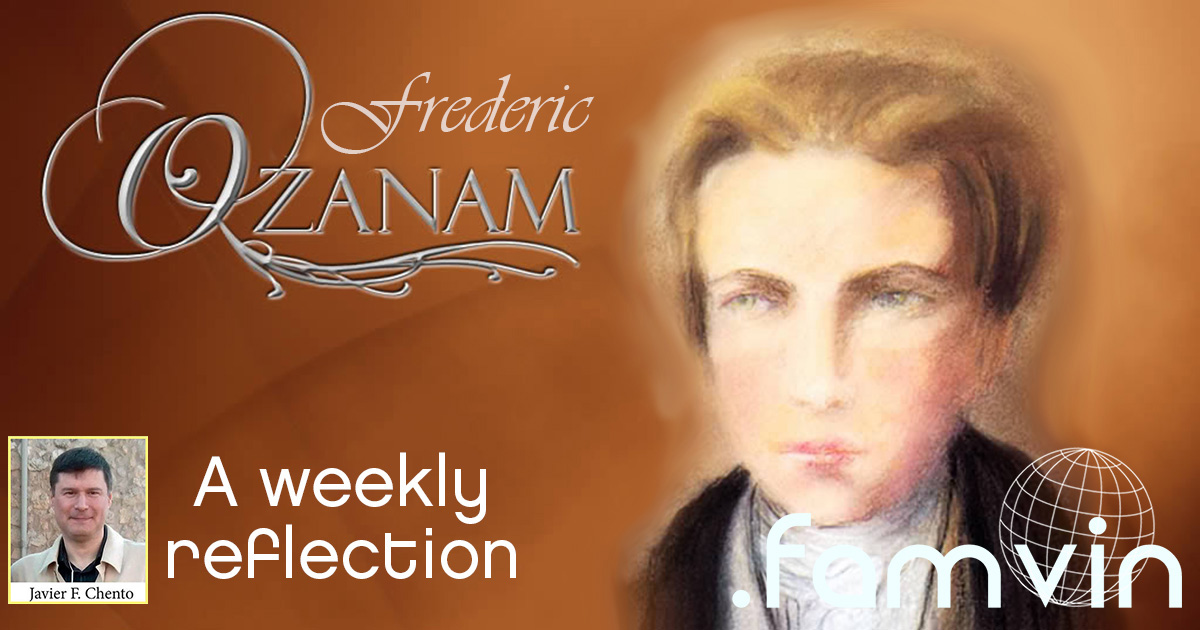Assisting the Poor is Way More than Giving them Bread • A Weekly Reflection with Ozanam
Help is humiliating when it appeals to men from below, taking heed of their material wants only, paying no attention but to those of the flesh, to the cry of hunger and cold, to what excites pity, to what one succors even in the beasts. […]
It humiliates when there is no reciprocity. […] But it honors when it appeals to him from above, when it occupies itself with his soul, his religious, moral, and political education, with all that emancipates him from his passions and from a portion of his wants, with those things that make him free, and may make him great. Help honors when to the bread that nourishes it adds the visit that consoles. […]
When the help treats the poor man with respect, not only as an equal but as a superior, since he is suffering what perhaps we are incapable of suffering; since he is the messenger of God to us, sent to prove our justice and charity, and to save us by our works. Help then becomes honorable because it may become mutual, since every man who gives a word, an opinion, a comfort today, may have need of that same tomorrow.

“Help that humiliates or honors” (Frederic Ozanam, in l’Ere Nouvelle, 1848)
Reflection:
- If we read this text from the twenty first century, from the perspective of our contemporary Vincentian Family, we can immediately relate it to the Social Doctrine of the Church and some types of work that we are getting used as Vincentians, for example Systemic Change. But we must not forget that this text was written almost 170 years ago, when the social and ecclesial realities were very different. The Social Doctrine of the Church did not exist as such (properly, the term “social doctrine” was first used by Pope Pius XI in his encyclical Quadragesimo anno, 1931, who quotes his predecessor Leo XIII and his encyclical Rerum Novarum, published in 1891, while acknowledging that concerns about economic and social problems predated Rerum Novarum), and Systemic Change notion was absolutely unknown. We say, and we say well, that Frédéric was a predecessor of the Social Doctrine.
- Frédéric presents a holistic rapprochement to the poor. This strange and unusual word, holistic, does not mean less than a total and global vision. That is, Frédéric invites us to approach the poor person in his full being, in all her vital needs, not only those purely for survival. And with that he seeks the integral liberation of the person who is poor. “With those things that make him free, and may make him great.” We, Vincentians, are called to seek this holistic approach in our encounter with the poor. To accomplish a mere welfare work would be to betray our charism and spirit. Our work and our charism is to free the human person, to make him protagonist of his own history so he can come true and be an active member in society.
- But this work is not unidirectional. The poor give us — and “evangelize us,” as St. Vincent de Paul said — much more than what we are able to offer them. Frédéric was clear on the “eminent dignity of the poor” and said, in other words, what the Vincentians received from the charism of Vincent de Paul: that the poor are our lords and masters, that they are sacrament of Christ, alive and suffering in our world. Ozanam ends saying that, when we treat the poor with respect and knowing that they are “the envy of God,” then “help becomes honorable because it may become mutual, since every man who gives a word, an opinion, a comfort today, may have need of that same tomorrow.” That is, our assistance is made according to the will of God, and we are building a Kingdom where fraternity is one of the main priorities: “Anyone who wants to be first among you must be slave to all” (Mark 10, 44).
Questions for dialogue:
- How deep is our knowledge of the Social Doctrine of the Church? Enough, not enough? Is the Social Doctrine of the Church present in our Vincentian being and acting?
- Do we seek the full and lasting liberation of the poor, whom we serve? Are we satisfied with the immediate and we relegate the permanent, when assisting the poor?
- Do we work so that the poor is the protagonist of his own liberation? Are we implementing Systemic Change in our works?
- Do the poor evangelize me? Do the poor transform my life? How is this shown in my life?
- Are the poor really our absolute priority in the Vincentian charism, or do we allow ourselves sidetracked by other “more superficial” aspects in our Christian life?
Javier F. Chento
![]() @javierchento
@javierchento
![]() JavierChento
JavierChento








Can you tell me how to get a clean print job from this site. Every time I try to print one of your articles I get print over runs that cover up some of the text on every page making it difficult to share with other or use in a group setting??? Thanks, God bless.
Hi, Roger (Aidan here). I use the green “Print or Email” icon to create a pdf and download it. Then I print, and it seems to work fine. If it runs off the edge of the page, make sure that your printer is choosing US Letter size, and use the “fit to page” option on the printer.